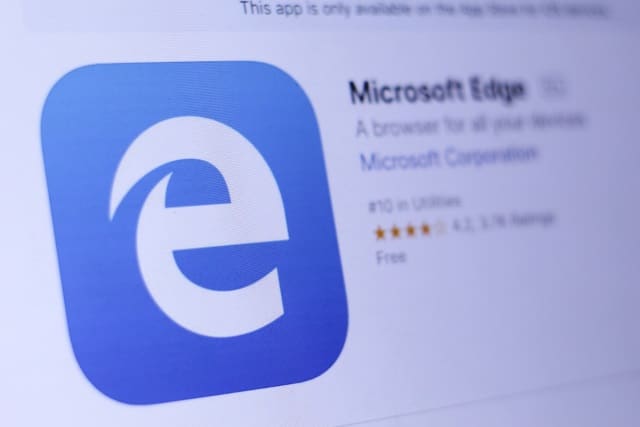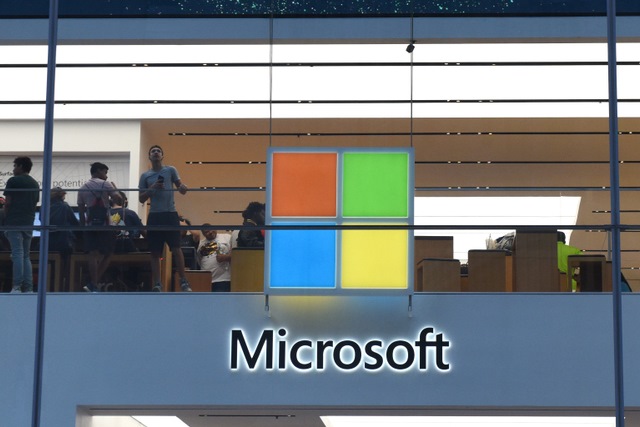
DuckDuckGo reminds ignorant users that many websites ignore browsers' Do Not Track privacy requests
In an increasingly-connected world where data is collected and shared, privacy has become ever-more important to people. If you are of that mind, you may have enabled the Do Not Track (DNT) setting in your web browser in the hope that it will stop the websites you visit from tracking your online activities. Bad news: it probably makes no difference whatsoever.
This might be something you knew already, but research by privacy-focused search engine DuckDuckGo -- which famously does respect DNT requests -- found than more than three-quarters of people were not aware of that that many sites ignore DNT settings.

Time's up! Microsoft is flipping the IE 10 kill switch in 2020
Microsoft has been trying to encourage users away from Windows 7 for a while now, with support officially ending next year. But it's not just the operating system that is reaching the end of the line; Microsoft is also warning the remaining Internet Explorer 10 users that support ends in 2020, advising that it is time to migrate to Internet Explorer 11.
In a warning posted on its IT Pro Blog, Microsoft says that after January 2020, Internet Explorer 10 will no longer be supported. The company states, quite definitively, that it will "not release any security or non-security updates, free or paid assisted support options, or online technical content changes for IE10".

Mozilla confirms Firefox Screenshots is here to stay, although one key feature will be lacking
It has been a busy time at Mozilla recently, with the relaunch of Mozilla Labs and the closure of the Firefox Test Program. The second piece of news -- coupled with the shelving of certain changes to Firefox -- led to speculation about the future of Firefox Screenshots, but Mozilla has come forward to try to calm these fears.
The company says that the screengrabbing tool -- which has become loved by many users since it launched nearly a year and half ago -- is here to stay. It's not all good news, however. One major feature is getting the axe: the ability to save screenshots to a Firefox-hosted server.

Even Microsoft Edge thinks the Daily Mail website is an untrustworthy source of news
Users of Microsoft Edge have a new feature to help protect them from fake news. The Android and iOS versions of the Edge browser now offer NewsGuard integration, warning when people visit untrustworthy sites.
The feature may only just have gone live, but there are already some amusing -- or pleasing, depending on your point of view -- results coming from it. Perhaps the most notable is that the Daily Mail website, Mail Online, is flagged up as "generally fails to maintain basic standards of accuracy and accountability".

How to export your saved passwords from Google Chrome
From social media sites to online stores, from forum accounts to financial institutions -- there are now so many websites that require the use of a username and password, it's little wonder than so many of us turn to some form of password manager to save them.
If you use Google's Chrome browser, you have almost certainly saved numerous passwords so you don't have to manually enter them every time they are requested. You may have wondered how to export these passwords for the purposes of backing them up, or to import into another password manager. Here, we show you how.

Mozilla closes experimental Firefox Test Pilot program
Just weeks after relaunching Mozilla Labs, the Firefox maker has announced that the browser's Test Pilot program is closing down. The move comes as Mozilla says it is "evolving Firefox's culture of experimentation".
The Test Pilot Program has been a beta testing ground for numerous Firefox features including Containers, Activity Stream and Firefox Monitor. But while this particular program is going away -- and with very little notice -- Mozilla says that experimentation will continue, and promises that experimental features will not be disabled for those who are currently using them.

Dark mode is coming to Chrome in Windows 10 soon
An increasing number of apps and websites are gaining dark modes, often simply for the sake of aesthetics, but also because of power-saving considerations. Having added eye-saving dark modes to numerous Android apps, Google has confirmed that it is doing the same for the Windows 10 version of Chrome.
While there is no particular time frame in which we can expect to see Chrome's dark mode, a Chrome developer has confirmed that the feature is in progress.

Sign up as an Microsoft Edge beta tester to try the new Chromium-based version of the browser first
Microsoft recently confirmed that it plans to transition its Edge browser away from the EdgeHTML engine to Chromium, embracing open source, bringing Chrome extensions and more. Making such a big change obviously requires a lot of testing, and Microsoft is giving you the chance to get involved via the Microsoft Edge Insider program.
The company already has the Windows Insider program for people who want to get their hands on new builds of Windows 10 earlier than they would normally, but this is a commitment that not everyone is willing to sign up for. Now Microsoft has launched a beta program for Microsoft Edge so you can try out early builds and help to shape the future of the browser.

Rethinking browsers
With browsers often in the middle of many corporate activities, it’s no wonder that they are now subject to many of the same challenges encountered on desktops, smartphones and other hardware-based endpoints. Many IT pros wouldn’t consider browsers to be a critical network endpoint, but those pros would surely place importance on mobile devices, laptops, desktops and servers. Given the valuable role browsers play in accessing enterprise applications and information, it’s time to rethink how we classify them and, more importantly, how we manage and secure them.
Mobility and cloud computing are taking over today’s workforce, and the browser’s significance is trending. The majority of office applications -- such as Microsoft Office 365, Salesforce CRM, and the Zoho One business suite -- run in the cloud and are accessible via browser. These kinds of applications allow users to work from anywhere, at any time, using their laptops, smartphones and other browser-enabled devices.

Firefox Quantum 64 improves tab management, adds Task Manager page
With the news that Microsoft Edge will be ditching its own browser engine in favor of Google’s Chromium, those wishing to strike a blow against monopolization the net should be looking at Mozilla’s Firefox, which continues to develop its own independent Gecko engine. Firefox Quantum 64.0 has just been released for desktop, along with Firefox for Android 64.0.
Mozilla has made its own pitch for why the news about Edge could be bad for the wider net, but in the meantime Firefox 64.0 delivers a smattering of new features, and various other changes.

Microsoft confirms you will be able to use Chrome extensions in Edge
The news that Microsoft is going to create a Chromium-based version of its Edge browser has been met with a mixed reaction, but there is some good news for users. The company has confirmed that the adoption of Chromium means that Edge will support Chrome extensions.
Microsoft Edge has been much maligned for its lack of features when compared to Firefox, Chrome and Opera, and the number of extensions currently supported by the browser is laughably small. For this reason, the confirmation that Chrome extensions will be supported will be warmly welcomed by users.

You may be happy about Microsoft's adoption of Chromium, but Mozilla thinks it is bad for competition
After the rumors, confirmation came from Microsoft that it plans to move its Edge browser from the EdgeHTML engine to Chromium. Reaction from users has been largely positive, but it's not the same story across the technology industry as a whole.
While Google is understandably happy about the change, the CEO of Mozilla, Chris Beard, says it is bad for competition and will help to make Google even more powerful.

Hate Edge? Microsoft may be ready to move on to a Chromium-based browser
If Microsoft isn't careful, it is going to start getting through web browsers faster than Google gets through messaging tools. Having moved on from Internet Explorer to Edge, the company is now said to be looking to transition to a Chromium-based browser for Windows 10.
It's fair to say that Edge hasn't won itself too many fans since it first appeared three years ago, so the suggestion that Microsoft may ditch EdgeHTML in favour of a browser based on Chromium is likely to be widely welcomed. Said to be codenamed Anaheim, the news Microsoft has a new rendering engine on the horizon will go down well with those who have been disappointed by Edge.

Firefox Monitor Notifications will issue a warning if you visit a breached site using Mozilla's web browser
If a website suffers a security breach you may well decide that you want to give it a wide berth. The problem is that it is impossible for individuals to keep track of all of the breaches that take place, and Mozilla wants to help out.
After teaming up with Have I Been Pwned recently, Mozilla created Firefox Monitor to help inform people about breaches, and this is now expanding to more languages. On top of this, the organization has also now launched Firefox Monitor Notifications that will issue a warning if you visit a site that has been breached.

How to use picture-in-picture mode in Chrome 70
The Chrome web browser was starting to get some bad press after problems with extensions and then concerns over automatic sign-ins. Google listened to the complaints and promised to do something about it -- the result is Chrome 70.
But Chrome 70 is about more than just security and privacy changes. Google has also used this released to introduce a handful of new features. One of the best is picture-in-picture mode (PiP) which lets you keep watching a video in an overlay while you continue to browse other sites. Here's how to use it.
